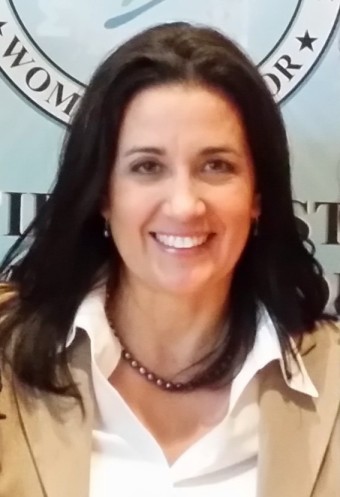Funding Your Graduate Education with the NSF GRFP Fellowship
Location
Sherman Hall : 003
Date & Time
September 10, 2016, 10:00 am – 3:00 pm
Description
Speaker Biographies

Dr. Frances D. Carter-Johnson, Education Data Scientist, National Science Foundation, Division of Human Resource Development (HRD), and Directorate for Education and Human Resources (EHR)
Dr. Carter-Johnson is a graduate of UMBC’s Department of Public Policy and formerly served as a STEM Policy Analyst at Westat. Dr. Carter-Johnson has degrees in Public Policy, Applied Physics, Pure Physics, and Mechanical Engineering from UMBC, Georgia Tech, and Spelman College. She has received research support and fellowships from NASA, NSF Graduate Research Fellowship Program (GRFP), SREB, The Department of Education, GEM, the American Evaluation Association, NIH, and MIT. Dr. Carter-Johnson completed her postdoctoral training at the Teaching and Learning Laboratory at MIT, and was a Science and Technology Policy Fellow of the American Association for the Advancement of Science (AAAS). She currently is an Education Data Scientist at the National Science Foundation in the Division of Human Resource Development (HRD) and is the Directorate for Education and Human Resources (EHR).

Dr. Patricia Ordóñez, Department of Computer Science, University of Puerto Rico – Rio Piedras
Dr. Ordóñez is a graduate of UMBC’s Department of Computer Science. She is an Assistant Professor at the University of Puerto Rico Rio Piedras. Dr. Ordóñez has degrees from Johns Hopkins University and UMBC in Hispanic and Italian Studies, and Computer Science respectively. She has taught several classes at UMBC and was a Technical Trainer for UMBC’s Training Centers, focusing on JAVA Computer Programming Certifications and curriculum development. Dr. Ordóñez was an NSF Graduate Research Fellow, and has received fellowships and/or recognition from Xerox, Verizon, Google, The Ford Foundation, The Hispanic Scholarship Fund and UMBC. Dr. Ordóñez is the Leader of Biomedical Informatics Function for the Puerto Rico Clinical and Translational Research Consortium, and her research is focused on applying machine learning, data mining, and data visualization to big time series data for the purpose of improving medicine and on developing assistive technologies for programming. Dr. Ordóñez also presents this workshop on graduate research funding in Puerto Rico in Spanish.
AGENDA
SESSION 1: "Funding Your Graduate Education"
10:00 AM -12:00 PM -- SEMINAR (General Public)
This seminar will include general information about funding for graduate school. Information regarding a variety of fellowships will be shared. Most of the content will focus on funding that is available in the U.S. for students in STEM fields. Many of these fellowship opportunities are sponsored by the U.S. government, and are therefore reserved for U.S. students. There will be a small amount of information available to international students and students in the Humanities and Education, but in addition to talking about general fellowships, a primary focus of this seminar will be the National Science Foundation's Graduate Research Fellowship (GRFP). The NSF GRFP Fellowship covers STEM fields, including social and behavioral sciences, e.g., Psychology, STEM Education, Public Policy.)
Breakfast will be served.
------------------------------------
SESSION 2: "Starting Your Application"
12:00 PM - 3:00 PM -- NSF Fastlane session (By reservation/appointment only)
To join this session, you must reserve your space in the comments below before September 7, and you must bring your laptop. Lunch will be served at this session. Lunch is reserved for attendees who come to the second session. This session is for those who are making the commitment to submit the NSF Graduate Research Fellowship application. Participation in this session requires participation in SESSION 1. This session will take you through the process of logging onto the Fastlane, NSF's online application submission website, and the presenters will assist you with the early stages of preparing your essays and documents for the fellowship application.
List of fields: http://www.nsf.gov/pubs/2012/nsf12599/nsf12599.htm#appendix.
Applicants for the GRFP must meet the following criteria:
- During the senior year of an undergraduate program
- After completing their undergraduate program but prior to entering graduate school
- During the first year of graduate school
- Prior to completing the Fall term of the second year of a full-time graduate program.
[Both undergraduates and graduate students may attend SESSION 1 and SESSION 2.]
_________________________________
Graduate students and undergraduates from all schools in the region are invited to attend this seminar. All current LSAMP Bridge to the Doctorate Fellows are required to attend the workshop, and are required to apply for the NSF GRFP.
